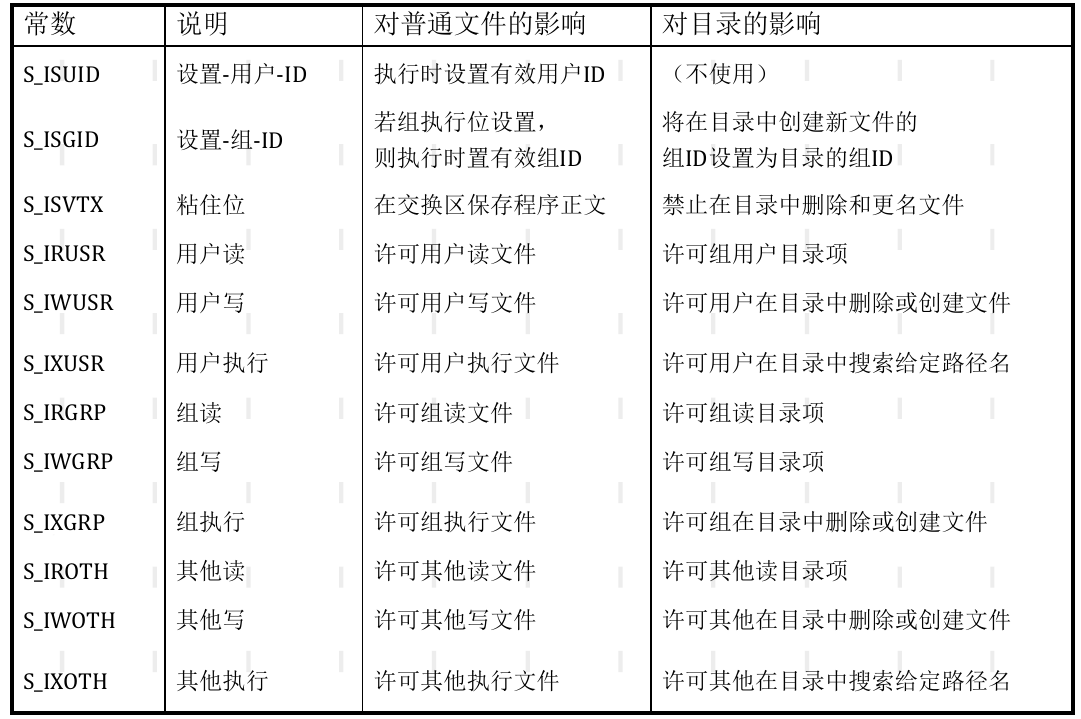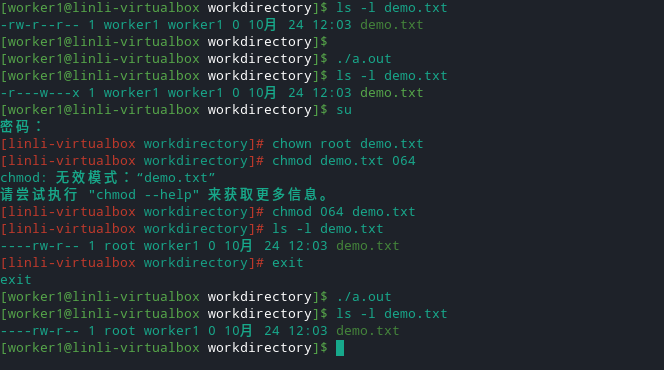函数chmod、fchmod和fchmodat
#include <sys/stat.h>
int chmod(const char *pathname, mode_t mode);
int fchmod(int fd, mode_t mode);
int fchmodat(int fd, const char *pathname, mode_t mode, int flag);
chmod函数
用于改变现有文件的存取许可权
函数原型:
int chmod(const char* pathname, mode_t mode);
参数和返回值
第一个参数pathname:要改变权限的文件
第二个参数mode:新的存取权限位组合
返回值:成功则为0,出错则为-1

fchmod函数
用于改变现有文件的存取许可权
函数原型:
int fchmod(int filedes, mode_t mode);
参数和返回值
第一个参数filedes:要改变权限的文件描述符
第二个参数mode:新的存取权限位组合
返回值:成功则为0,出错则为-1
测试程序
#include<sys/types.h>
#include<sys/stat.h>
#include<unistd.h>
#include<stdlib.h>
int main()
{
chmod("demo.txt",S_IRUSR|S_IWUSR|S_IRGRP|S_IROTH);
exit(EXIT_SUCCESS);
}
进程的有效用户ID等于文件的所有者,或者进程具有超级用户权限,才能改变文件的许可权位。
#include<sys/types.h>
#include<sys/stat.h>
#include<unistd.h>
#include<stdlib.h>
int main()
{
chmod("demo.txt",S_IRUSR|S_IWGRP|S_IXOTH);
exit(EXIT_SUCCESS);
}

chmod在下列条件下自动清除两个许可权位
如果试图设置普通文件的粘住位(S_ISVTX),而且又没有超级用户权限,则mode中的粘住位自动被关闭。这意味着只有超级用户才能设置普通文件的粘住位。
最后
以上就是清爽诺言最近收集整理的关于第三章_文件和目录 : 函数chmod、fchmod和fchmodat的全部内容,更多相关第三章_文件和目录内容请搜索靠谱客的其他文章。
本图文内容来源于网友提供,作为学习参考使用,或来自网络收集整理,版权属于原作者所有。








发表评论 取消回复